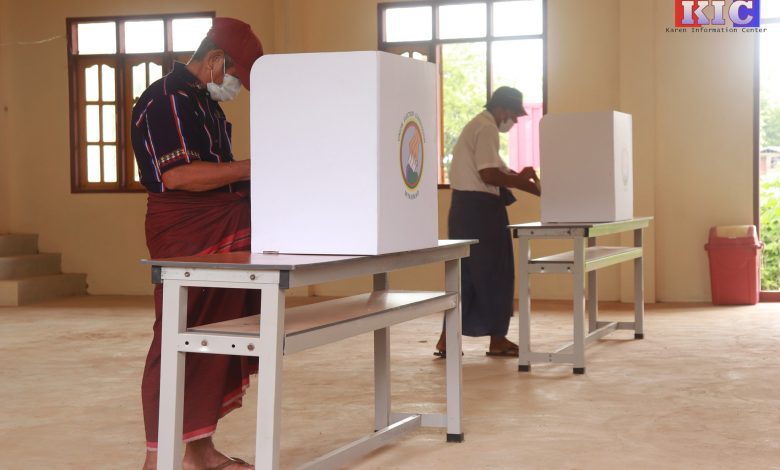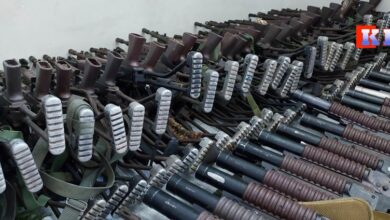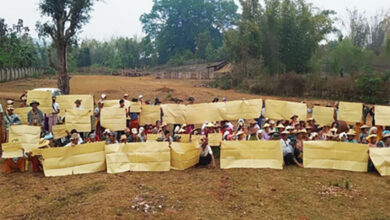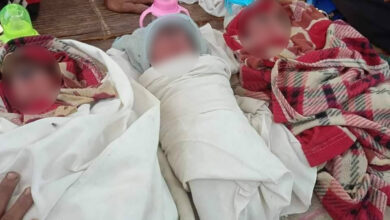Burma Election 2020 – “We Don’t Want a Government that Protects the Military – We Want a Government that Works for the People…”
Optimism generated by the National League of Democracy’s 2015 massive election win soon evaporated as Suu Kyi’s NLD government showed its support for the military in its genocidal attacks on Rohingya people, its crack down on human rights advocates, a stalled National Ceasefire Agreement, its jailing of journalists and failure to assist displaced people and refugees. As the 2020 election looms on Sunday November 8th, ethnic political parties, international human rights organizations and civil society advocates fear more of the same if the NLD wins a second term.

Naw Wah Ku Shee, Coordinator with the Karen Peace Support Network (KPSN) told Karen News without changes to the 2008 Constitution the military retain its stranglehold on the political process.
“I don’t have much hope [on the election] because this will still be under the 2008 constitution. Even a strong party like the NLD couldn’t make any significant changes during its last term. Daw Aung San Suu Kyi made many talks about bringing changes as she entered the parliament, but throughout her term, she didn’t make any major changes, especially when it came to the right of ethnic nationalities. So, for me, no mater whoever enters the race, unless there are amendments made to the 2008 constitution, there will be no significant changes.”
Brad Adams, Asia director at Human Rights Watch issued a statement that said the 2020 elections continued to favour the military and were massively flawed.
“The election can’t be free and fair so long as a quarter of the seats are reserved for the military, access to state media isn’t equal, government critics face censorship or arrest, and Rohingya are denied participation in the vote.”
To offset concerns over recent increases in Covid-19 infections in Burma the Union Election Commission said the election will go ahead as schedule and it would boost the number of polling stations to limit overcrowding and provide personal protective equipment to polling booth staff. Opposition parties want the government to postpone the vote due to difficulties campaigning.
HRW said “because of the increase in Covid-19 cases, the authorities have issued stay-at-home orders in the commercial capital, Yangon, and parts of Mandalay, Rakhine State, Mon State, Bago, Ayeyarwaddy, and elsewhere. Only people engaging in “essential” business are allowed to travel between townships in affected areas.”
An alliance of five ethnic parties – Karen, Kachin, Kayah, Chin and Mon – put out a statement calling the Union Election Commission to review its vote cancellation areas.
The alliance’s statement pointed out that by announcing the election cancellation only 20 days or so before the election, the UEC is not being fair to ethnic voters and questioned the free and fair status of the election. The statement said the UEC action would have negative impacts on peace building, national reconciliation, justice, federal union and the efforts to the amendment of the 2008 constitution.
Mahn Min Ye Htwe, joint secretary of the Karen National Party (KNP) spoke to Karen News.
“The election cancellation in ethnic areas will result to a lesser representations of ethnic civilians in the parliament but the 25% provision of military representatives will not be effected. This mean 25% proportion of the military representatives could even increase to 26%, especially in Rakhine State where elections were cancelled in 9 out of 13 townships. This is not a good situation.”
HRW accused the NLD government of “using the discriminatory 1982 Citizenship Law and the Election Law to disenfranchise Rohingya and prevent them from running for office, even though most Rohingya families have lived in Myanmar for generations, Human Rights Watch said. Many Rohingya were hopeful that after the 2015 elections, NLD leader Aung San Suu Kyi would change these laws and policies. Instead, the NLD has supported the military as it carried out ethnic cleansing, crimes against humanity, and possible genocide against the Rohingya in Rakhine State.”
HRW said the use of the 1982 Citizen Law makes sure “none of the one million Rohingya refugees in Bangladesh and another several hundred thousand dispersed in other countries will be allowed to vote. The authorities have barred most Rohingya remaining in Myanmar, estimated at 600,000, from registering to vote in the election. This includes approximately 130,000 Rohingya detained in camps in central Rakhine State since 2012, where they endure the crimes against humanity of persecution and apartheid and other serious rights abuses. Voter lists, posted around the country in July and August, are absent from Rohingya camps and villages.”
Saw Honest, a leader at Mae La Refugee Camp on the Thai Burma border said he is hoping the 2020 election delivers more for ethnic people.
“A new government after the 2020 election, needs to make changes to the 2008 Constitution, so that other changes in the country can be made. We hope we have a government that stands for the people and brings development to the country. Most importantly, it needs to be a government that recognizes the rights and equality of ethnic nationalities.”
The 80,000 people in the nine refugee camps on the Thai Burma border have seen their rations, access to education and health shredded below sustainably levels. Civilians trapped in the camp accuse the NLD of failing to accept its share of the responsibility to repatriate refugees with dignity.
Naw Eh Paw a refugee, living at Mae La camp said.
“Everyone wants leaders that love the people, but we also want a government who can make sure the country is govern peacefully. We don’t want a government that oppresses the people. We want [a new government] to make sure they have responsible plans for us who are caught in refugee camps. We want to live in peace, we don’t want more war or conflict. We want to have our lives back.”
Like most ethnic people interviewed for this story Naw Ka Nyaw Paw, Secretary, Karen Women Organization said the previous election win for the NLD brought little in the way of democratic reforms for ethnic people.
“The NLD came into power but they couldn’t bring any major changes. Furthermore, this government didn’t speak out against the abuses and violations against our ethnic nationalities. The next government needs to work together with ethnic revolutionary groups to oppose the military dictatorship. We don’t want to see a repeat where the government take sides with the military, stands with the military and protects the military.”




